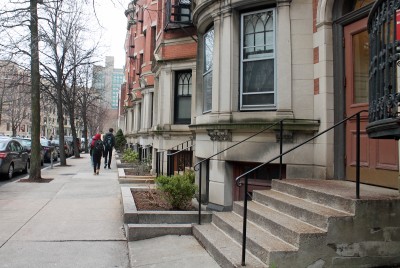
Boston Mayor Martin Walsh signed an ordinance into law Friday to require municipal employees hired on or after July 1, 1976 to be a resident and registered voter in the City of Boston, according to Bonnie McGilpan, a spokesperson for Walsh.
The mayor has the authority to waive the requirements if the position to be filled “requires a unique set of skills, which without lifting the residency requirement, would render the position difficult to fill within a reasonable time,” according to the ordinance.
City employees have been required to reside in Boston since a 1976 ordinance in the City of Boston Municipal Code, according to the city’s official website, but administrations prior to Walsh’s have not enforced this law.
Walsh wrote in a statement that the changes follow the recommendations of the Residency Policy Commission, which was appointed to study the policies in place for the past year.
“I appointed a Residency Policy Commission to do an exhaustive look aimed at modernizing our residency policies, because we know consistent residency policies are an important tool to balance the workforce that represents our city, and recruiting and retaining top talent,” Walsh wrote in the statement. “I am grateful for the commission’s recommendations, and this ordinance represents a new era of consistency, enforcement and fairness within city government.”
Daniel Aldrich, a professor at Northeastern University, wrote in an email that the law will help municipal employees understand Boston residents.
“The law has a good goal: to ensure that those civil servants who represent and serve the needs of the people actually understand their lives by living in the same neighborhoods, driving on the same roads [and] sitting on the same buses,” Aldrich wrote.
Aldrich stated that he is confident the benefits outweigh inconveniences that may arise.
“It will certainly inconvenience some employees hired in the future who will need to find housing in a very crowded market, but the gains are also substantial: a political elite and body of civil servants who serve Boston and understand it well,” Aldrich wrote.
The new ordinance features an exception for members of the Boston Police Department’s commanding staff and senior management appointees in the Boston Fire Department who have lived in the city for 10 years and were appointed prior to Jan. 1 of this year.
Eileen Boyle, a spokesperson for the pro-residency campaign Save Our City, said no city officials should be exempt from the law.
“It should be followed by everyone, and even a select few should not be exempt,” Boyle said. “Everyone needs to do their part, from city and police leaders all the way down the ladder.”
Boyle said the law will be effective only if it is strongly enforced.
“The law is meant to create stable neighborhoods of municipal employees,” Boyle said. “I hope it is thoroughly enforced by Walsh’s administration. For years, it’s been ignored by city officials.”
Several Boston residents expressed support for the ordinance and said they hope it will be enforced to ensure that government employees are invested in their jobs.
Noelle Paige, 36, of Downtown Boston, said she hopes this new action on behalf of the mayor encourages people to take the ordinance seriously.
“This law should have been enforced strictly from the start,” she said. “It’s important for the people representing us and acting in government to have the same Boston-specific experiences that citizens have. Police officials shouldn’t be excluded. They need to understand local attitudes and problems if they are going to effectively enforce the law within Boston communities.”
Daniel Salas, 45, of the South End, said he supports a more lenient residency rule on account of the lack of affordable housing in Boston.
“In a city with such an expensive and competitive housing market, I think that municipal employees should be required only to live in Boston or a very nearby suburb,” he said. “I get where the rule comes from, but I think the Boston experience can be extended to the Greater Boston Area.”
Regan David, 53, of Back Bay, called for fewer exclusions of the residency rule, particularly on behalf of policymakers and enforcers.
“It’s refreshing to see action taken on this,” he said. “Government employees should not be exempt from laws like this. I want the people making decisions on my behalf to live in the city that they will affect. Whether they are a lower-ranking employee or a city councilor, makers and enforcers of the laws that govern us have a responsibility.”

















































































































